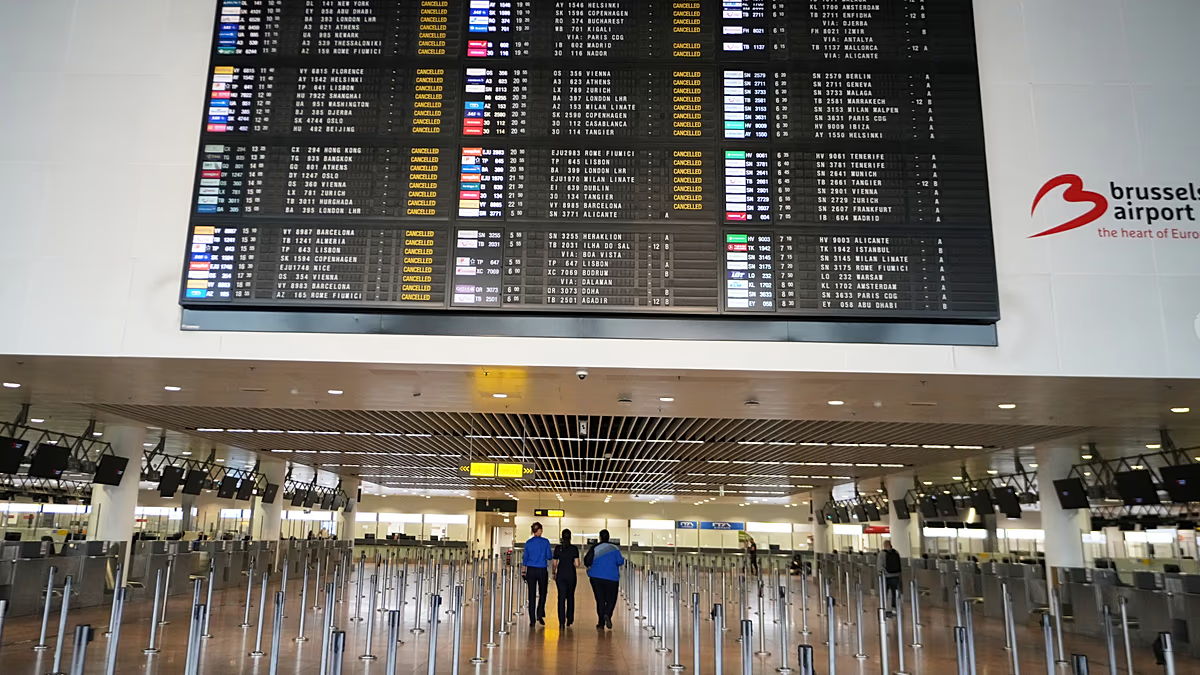Transport Strikes Cause Widespread Disruption Across Belgium
Travel across Belgium is facing significant disruption this week as nationwide strikes grip the country’s transportation networks. Three major unions have joined forces to protest the government’s proposed austerity measures, including controversial plans to raise the statutory retirement age. The coordinated action, which began on Sunday evening and continues through Wednesday, has severely impacted both air and rail travel, leaving thousands of passengers scrambling to adjust their plans. The strikes follow similar industrial action in October that caused widespread chaos across Belgian transport systems, affecting tens of thousands of travelers throughout the country.
Brussels Airport in Zaventem, Belgium’s primary international gateway, has taken the extraordinary step of canceling all departing flights on Wednesday, November 26. In a statement published on their website, airport authorities explained: “To ensure the safety of passengers and staff, we have decided, in consultation with airlines, not to operate any departing flights.” The decision came after ground staff and security workers announced their participation in the nationwide walkout. The airport has warned that numerous arriving flights may also face cancellation, and airlines are now working to contact affected passengers about rebooking options or refunds. The disruption at Brussels Airport alone will impact thousands of travelers during what would typically be a busy period for both business and leisure travel.
Brussels South Charleroi Airport, the country’s second-busiest air hub, faces a similar situation with no scheduled departures or arrivals possible on November 26. The airport has announced that airlines will be reaching out to passengers in the coming days to arrange rebookings or refunds. Beyond the flight cancellations, travelers heading to Charleroi face additional challenges throughout the three-day strike period, with airport authorities warning of potential roadblocks and significant disruptions to public transportation services. This comprehensive disruption of air travel has effectively isolated Belgium from much of Europe’s air network during the strike period, with ripple effects likely to impact schedules even after the industrial action concludes.
The rail network across Belgium has been severely affected by a 72-hour strike that began Sunday evening and will continue until late Wednesday night. National rail operator SNCB has announced it can only run approximately 20% of its regular service during the strike period, creating massive inconvenience for daily commuters and travelers alike. The disruption extends beyond national services to impact international connections as well. Eurostar, which operates high-speed services connecting Brussels with London and Paris, has been forced to significantly reduce its schedule. Only half of the normal services between Brussels and Paris are expected to run, while connections between Brussels and Germany will operate at just 20% capacity. Three-quarters of trains connecting Brussels with Amsterdam and Amsterdam with London will continue to operate, offering some relief for international travelers.
Public transportation within Belgian cities is also experiencing major disruptions, with metro, tram, and bus services across Brussels operating on severely reduced schedules. Commuters and visitors to the capital have been advised to make alternative travel arrangements where possible, further complicating movement throughout the city. For international passengers with connecting journeys, travel experts recommend allocating substantial extra time, as the combination of affected public transport and reduced domestic train services creates a perfect storm of delays and cancellations. Eurostar has been proactively contacting affected customers to offer free rebooking options, but passengers are still advised to closely monitor the operator’s live information updates for the latest service changes.
The strikes highlight growing tensions between Belgian workers and the government over proposed economic reforms. Union representatives argue that the austerity measures, particularly changes to retirement age, unfairly burden working-class citizens. Meanwhile, government officials maintain that such reforms are necessary to ensure the country’s long-term fiscal stability. As the strikes continue, both sides remain entrenched in their positions, with little sign of immediate resolution. For travelers and commuters caught in the middle of this dispute, the coming days will require patience, flexibility, and careful planning to navigate the severely disrupted transportation landscape. Many industry experts suggest that even after the official end of the strikes on Wednesday night, some lingering effects on schedules and operations may continue into Thursday as systems gradually return to normal.


